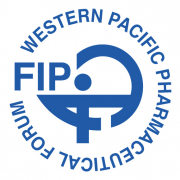6th WSMI Conference in Beijing
| 6th Asia Pacific Regional Conference of the World Self-Medication Industry (WSMI)
26-29 October 2004, Beijing, China WSMI’s international conference in Beijing has highlighted the rapid development of self-care and self-medication as a means to improve healthcare for millions of patients and consumers around the world. Over 300 delegates from many countries in the Asia Pacific Region attended the 6th Asia Pacific Conference of the World Self-Medication Industry (WSMI), 26-29 October 2004, at the Diaoyutai State Guesthouse, Beijing, China. Among the participants were regulators from many countries in the region. This important international conference was hosted by the China Nonprescription Medicines Association (CNMA) with the support of the China Center for Pharmaceutical International Exchange of the State Food and Drug Administration of China. [Picture 1: newspaper report showing Mr Zheng, SFDA Commissioner at the WSMI Conference]. In the keynote presentation of the opening session, Mr. Zheng Xiaoyu, Commissioner, State Food and Drug Administration, observed that self-medication is a traditional concept in self-healthcare, with a huge significance for the future, and that China has a long history of self-medication by using traditional Chinese medicines. The Commissioner described the functions of SFDA, the establishment and development of the classified drug administration system in China, and the opportunity to give full play to self-medication in the health system. [Picture 2: Dr Bekedam (WHO), Mr Zheng (SFDA) and Mr Yao (MOLSS)]. In the first session of the conference, Mr. Ulf Wiinberg, President of one of the world’s largest consumer healthcare companies, Wyeth Consumer Healthcare, described how the popularity and increased use of self-medication products (also known as nonprescription or ‘over-the-counter’, OTC products) is being driven by some key factors. These include patients taking more interest and responsibility for their own care, more OTC medicines are becoming available, and governments are encouraging their usage. A special session of the conference was dedicated to the role played by food supplements and tonics, and particularly by Traditional Medicines. Professor Zhang Bing of the Beijing University of Chinese Medicine reported significant development of herbal medicines in China and other countries. Country markets are giving positive regulatory status to herbal medicines, national policies are being implemented, and sales are rising. In one of the most exciting sessions, delegates were treated to presentations describing new opportunities in self-medication. Dr Charles Hennekens, Professor of Medicine & Epidemiology, University of Miami School of Medicine, USA described the opportunities for self-medication in the cardiovascular area – an area not traditionally associated with OTCs. Ms Juliet Seifert, Executive Director of Australian association ASMI described how products are being ‘switched’ from prescription status to OTC around the world. The new President of the World Medical Association (WMA) Dr Yank Coble spoke on the topic of patients becoming ‘self-health’ managers in future. In China, pharmacist outlets for OTC medicines are rapidly developing, giving patients and consumers new channels of choice. A session dedicated to the topic of ‘pharmacy and the general public’ showed what a substantial contribution pharmacists are starting to make in the area of self-care. The importance of partnership between industry and pharmacy was clear from this session. Partnership between regulators was also supported in the Regional Regulators’ Forum held in association with the WSMI Conference. The following countries were represented: Australia, Canada, China, Germany, India, Japan, Korea, Malaysia, Nepal, New Zealand and Thailand. The Regulators’ Forum provided an invaluable opportunity for reflection on the outcomes of the Tokyo (2002) and Sydney (2000) Forum Declarations as well as the wishes to strengthen exchange and collaboration among drug regulatory agencies in the region and the common interests to further progress important ongoing issues facing the regulation of non-prescription medicines. The Regulators’ Forum received presentations on the latest development of individual drug regulations in each country. In doing so, the Regulators’ Forum recognised the need for continued progression of responsible self-medication given the important role self-medication plays both to the contribution of patient and consumer self-care and to the development of national health-care systems. In summary, self-medication throughout the Asia Pacific Region is on the rise. Patients are taking a greater interest in their health and assuming more responsibility for their own care. The global self-medication market is responding – products are more available and there is greater utilization. Increasingly, healthcare professionals – doctors, pharmacists and even nurses, are playing different roles than in the past, roles that support and encourage self care. Regulation is evolving at the same time, encouraging the development of, and regulating access to, safe and effective medicines for the self-care consumer. There is a shared recognition between the regulatory authorities, healthcare professionals, industry, and patients and consumers, leading to all stakeholders working together towards our one common aim: better health for all. For the summary presentation of the conference by Dr David Webber, Director General, WSMI, please click here. |
| Source: |
| http://www.wsmi.org/news/news_21.htm |
